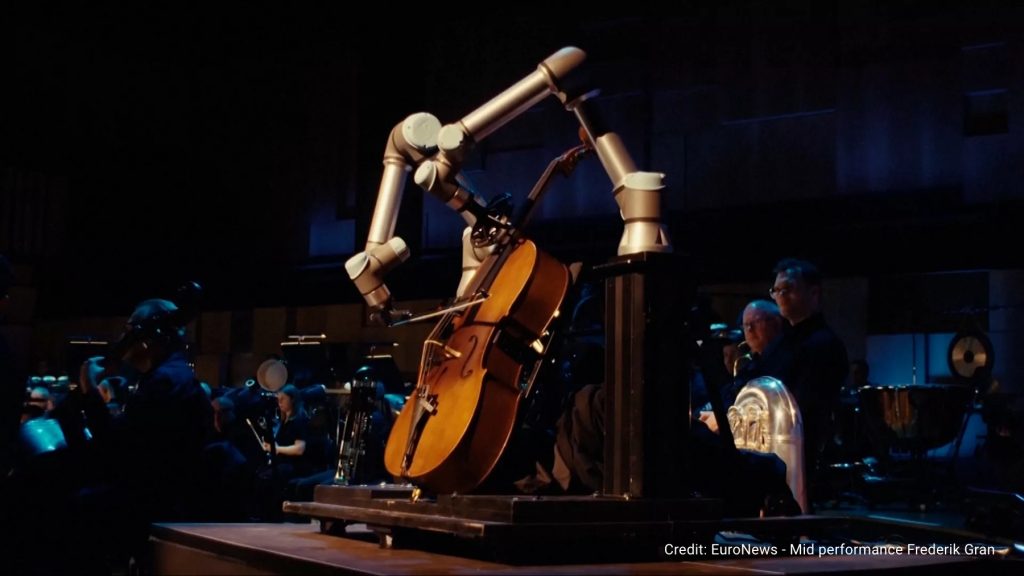
Acclaimed Swedish composer, Jacob Mühlrad has brought his vision to life with Veer, a robot cello playing a solo piece during the musician’s show.
As the orchestra played, Veer stood apart, its mechanical arms skillfully manipulating the bow and pressing the cello’s neck with precision. With an unexpected ending, the final piece of the evening at the Malmö Live Concert Hall, took the audience by surprise with a robot playing cello performance instead of a human cellist.
An Artistic Collaboration with Technology
Mühlrad partnered with Fredrik Gran, a fellow Swedish composer and robotics researcher, to develop a robot orchestra cello player to perform alongside an orchestra.
“Every week, he would add something new,” Mühlrad recalls of his conversations with Gran, which eventually led to the creation of Veer.
Robot cello player has an advanced programming to play notes with perfect accuracy, including intricate techniques like vibrato and bow pressure. Nothing like a traditional instrument, Veer doesn’t rely on human dexterity or emotion.
Veer can also perform complex musical passages that challenge even the most skilled human cellists. Yet, despite the robot’s technical brilliance, Mühlrad points out that the emotional depth of a human musician’s performance cannot be replicated.
“There are more musical parameters at the cello, like intonation and bow pressure, that can be controlled with great precision,” says Mühlrad.
The Swedish musician added that a human cellist’s personal expression and connection with the audience are irreplaceable and acknowledges that robots like Veer can explore new musical possibilities, but they are not a substitute for human musicianship.
For Mühlrad, the future is having human and robot musicians perform side by side.
“The complexity of musical interpretation may shift from the performer to the composer,” he explains, where the robot executes the technical aspects while the human musician brings in their unique interpretation.
Is Music from a Robot Emotionally Powerful?
Many of you may wonder if a robot’s music can match the emotional depth of human performance, Mühlrad is unfazed. He points out that electronic music, such as that produced by synthesizers, has long moved audiences emotionally.
“People are crying all the time to an electronic synthesizer,” he says, suggesting that emotional impact isn’t necessarily tied to the performer’s humanity but to the music itself.
The introduction of Veer is just the beginning of what could be a new chapter in classical music. Mühlrad sees a robot conducting orchestra cello piece is not a threat to human musicians but as an exciting development that adds a new dimension to the art form.
“Humans, they can’t be replaced,” he asserts, dismissing concerns that robots will take over the stage. Instead, he believes that technology is simply providing new mediums for artists to explore.
As Veer continues to advance, Mühlrad imagines a future where technology enhances human creativity rather than competing with it. Still, for the renowned composer, the heart of music will always be the human experience.
Despite the robot cello being a tool that would define the musical artistic scene, it can only complement, not replace, the depth of human emotion that defines music’s power.
nside Telecom provides you with an extensive list of content covering all aspects of the tech industry. Keep an eye on our Intelligent Tech sections to stay informed and up-to-date with our daily articles.